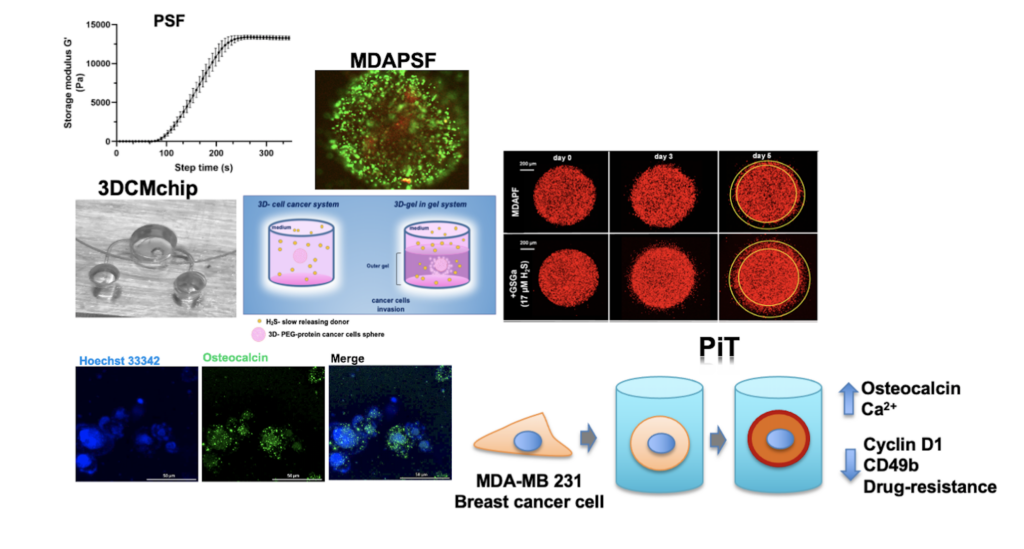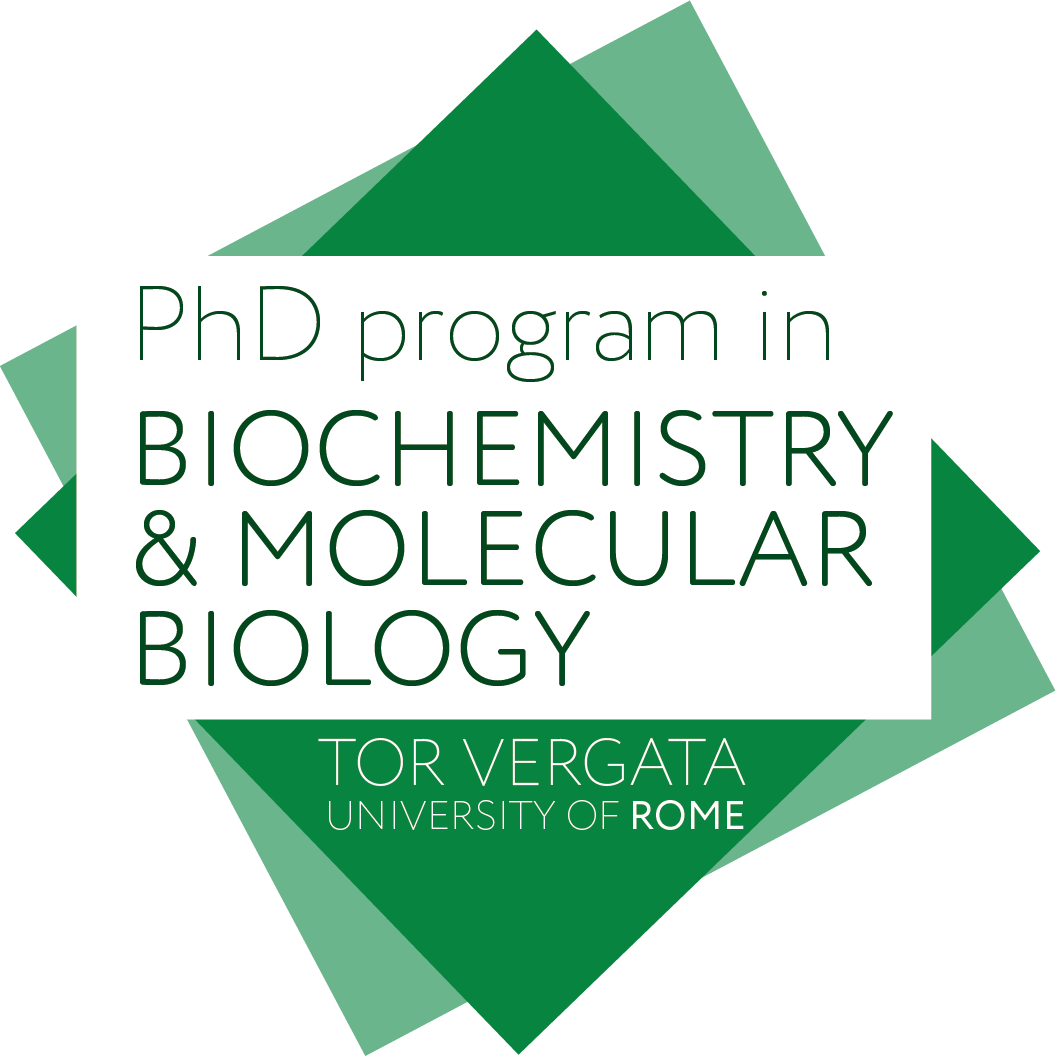Silvia Buonvino (36 cycle) and Ilaria Arciero (37 cycle) from Prof Sonia Melino group proposed a new model for breast cancer research (read the paper).
Tumoroid microspheres containing the MDA-MB 231 breast cancer cell line were prepared using either tunable PEG-proteins hydrogels, named MDAPFs and MDAPSFs. The cancer cells in the tumoroids showed changes both in globular morphology and at the protein expression level. A decrease of both Histone H3 acetylation and cyclin D1 expression in all 3D systems, compared to the 2D cell culture, was detected in parallel to changes of the matrix stiffness. The effects of a glutathionylated garlic extract (GSGa), a slow H2S-releasing donor, were investigated on both tumoroid systems. A dedicated ad hoc 3D cell migration chip was designed and optimized for studying tumour cell invasion in a gel-in-gel configuration. Silvia and Ilaria showed that the “dimensionality” and the stiffness of the 3D cell culture milieu can change the response to both the gasotransmitter H2S and doxorubicin due to differences in both H2S diffusion and changes in protein expression. Therefore, the hydrogel-based tumoroids investigated in this work represent valid tuneable models for studying the physically induced transdifferentiation (PiT) of cancer cells and as a more reliable and predictive in vitro screening platform to investigate the effects of anti-tumour drugs.

